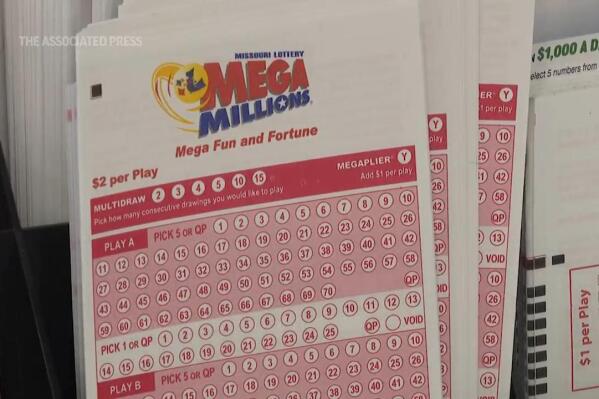DES MOINES, Iowa (AP) — At $1.4 billion, the Powerball jackpot on the line Saturday night is the world’s fifth-largest lottery prize, due to higher interest rates, long odds, fewer ticket sales per drawing and, of course, luck.
A combination of all those factors means that unless there is a winner soon, the jackpot could top the record lottery prize of $2.04 billion won last November by a Powerball player in California.
HOW DID WE GET HERE?
Someone last won the Powerball jackpot July 19, and since then it has grown three times a week, with each drawing on Mondays, Wednesday and Saturdays without a winner. It started at $21 million on July 22 and after 33 straight drawings in which no one matched all six numbers drawn, it has reached $1.4 billion for Saturday night’s drawing.
MATH AND LUCK
That winless streak shouldn’t be a surprise because it shows the game is operating as it was designed. The immense jackpot odds of 1 in 292.2 million are intended to make winning rare so the grand prizes can grow so large. People may say they would be satisfied with winning a smaller sum, but it’s the giant jackpots that prompt people to drop a few dollars on a Powerball ticket at the mini mart.
When someone wins the big prize and the jackpot reverts to about $20 million, sales drop dramatically. Those sales then rise steadily along with the top prize.
For Wednesday night’s drawing, roughly 25% of the 292.2 million possible Powerball combinations were selected, according to the Multi-State Lottery Association. That was up from about 20% for the drawing Monday night. The lottery association forecasts that for Saturday night’s drawing, sales will increase enough that nearly 38% of number combinations will be covered — in part because Saturday sales usually are higher.
Of course, people can win when jackpots are relatively small, as the odds never change, but the fewer tickets purchased, the less likely there will be a winner.
TICKET BUYING
Plenty of people buy Powerball tickets, but sales are far less than seven or eight years ago, when jackpots began to grow much larger after a change in the game’s odds. Before the jackpot odds worsened in 2015 from 1 in 175.2 million to 1 in 292.2 million, more people won the top prizes, so they didn’t grow so massive.
Initially, the giant prizes attract giant sales. For example, on Jan. 13, 2016, when a Powerball prize reached $1.5 billion — a record then, but close to what’s up for grabs Saturday — sales were so high that 88.6% of possible number combinations were covered. That’s more than double the sales expected this Saturday.
Some of that reflects that Powerball drawings now are held three times a week, so overall sales are similar, but it still means that the chance someone will hit the jackpot is far less now than several years ago.
Alan Feldman, a distinguished fellow at the University of Nevada, Las Vegas’ International Gaming Institute, said that state lotteries have worked hard to keep their games lively but that it is inevitable some people will lose interest over time.
“Things go in and out of style,” Feldman said. “Everything gets a little stale.”
DON’T EXPECT A CHECK FOR $1.4 BILLION
Lotteries promote the $1.4 billion jackpot, but the prize everyone is dreaming of is less than half that amount — $614 million. That’s because the $1.4 billion prize is for a sole winner who is paid over 30 years through an annuity, in which the $614 million cash prize is invested and pays more over time.
As interest rates have risen in the past year, the cash prize has generated much larger annuity prizes. Winners rarely take the annuity option, but that’s the big number that is displayed on lottery billboards.
As Drew Svitko, the Pennsylvania Lottery’s executive director, put it last fall, “We use investments to fund the annuity to pay that prize, so the investments rely on interest, and the degree to which interest rates affect the value of those investments also affect that jackpot.”


